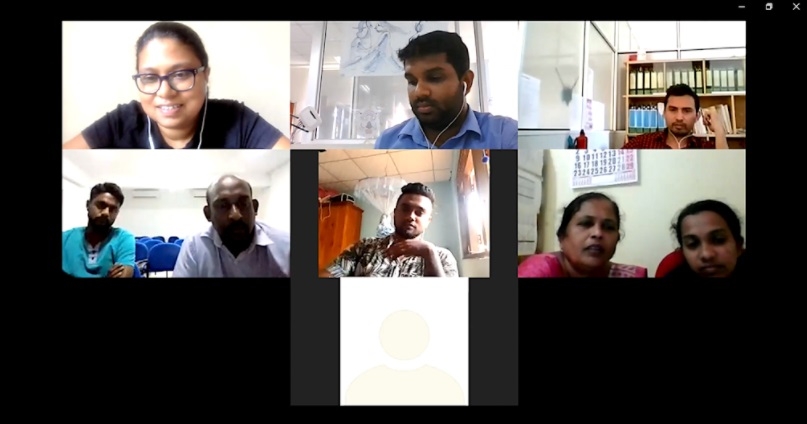NPC’s Social Cohesion and Reconciliation (SCORE) engagement held an online facilitation training for its local partners as part of its strategy to adapt to the new normal that has arisen with the spread of Covid-19. This was supplemented by a survey on Digital Literacy among target groups – 291 members of Coexistence Societies across four districts (Ampara, Monaragala, Mullaitivu and Vavuniya) and 10 Grama Niladari divisions.
The online facilitation training was on a training of trainers (ToT) model focused on building a cadre of co-facilitators on the ground to support training delivered virtually. NPC will adopt a hybrid model where resource input will be virtual and consultations and group interaction will be offline. Key elements of the training were the positives and drawbacks of hybrid facilitation, responsibilities and tasks of facilitator and co-facilitator, time management, and tactics for effective coordination. The sessions were interactive, encouraging and enabled partners to anticipate problems and issues that may arise in trainings.
The need for intensive and meticulous preparations and the management of time were key elements that were discussed. Another factor that was highlighted was the issue of online-fatigue. Participants in the training were from SCORE’s partner organizations in Ampara, Anuradhapura, Batticaloa, Vavuniya, Mullaitivu and Monaragala.
The facilitation training is in preparation for a series of trainings on “Resilient Communities through Everyday Democracy”, which will be conducted in the coming months. This will be across the 10 districts of Mullaitivu, Kilinochchi, Vavuniya, Jaffna, Kandy, Monaragala, Batticaloa, Trincomalee, Anuradhapura and Ampara.
The scoping on online communication capacity focused on the following themes: 1. Availability of a device 2. Availability of network facilities and 3. Digital literacy of the member. The findings indicated that 24 percent out of the total number 291 of respondents had some kind of a device to access the internet. In terms of the knowledge components, 22 percent were capable of using online apps. It was revealed 24 percent of respondents used the internet every day. At the end of the survey, a few recommendations were made to carry out future project activities. It was decided to divide the number of Co-Existence Society members who had a considerable level of digital literacy into a few groups and conduct the trainings online for them.

